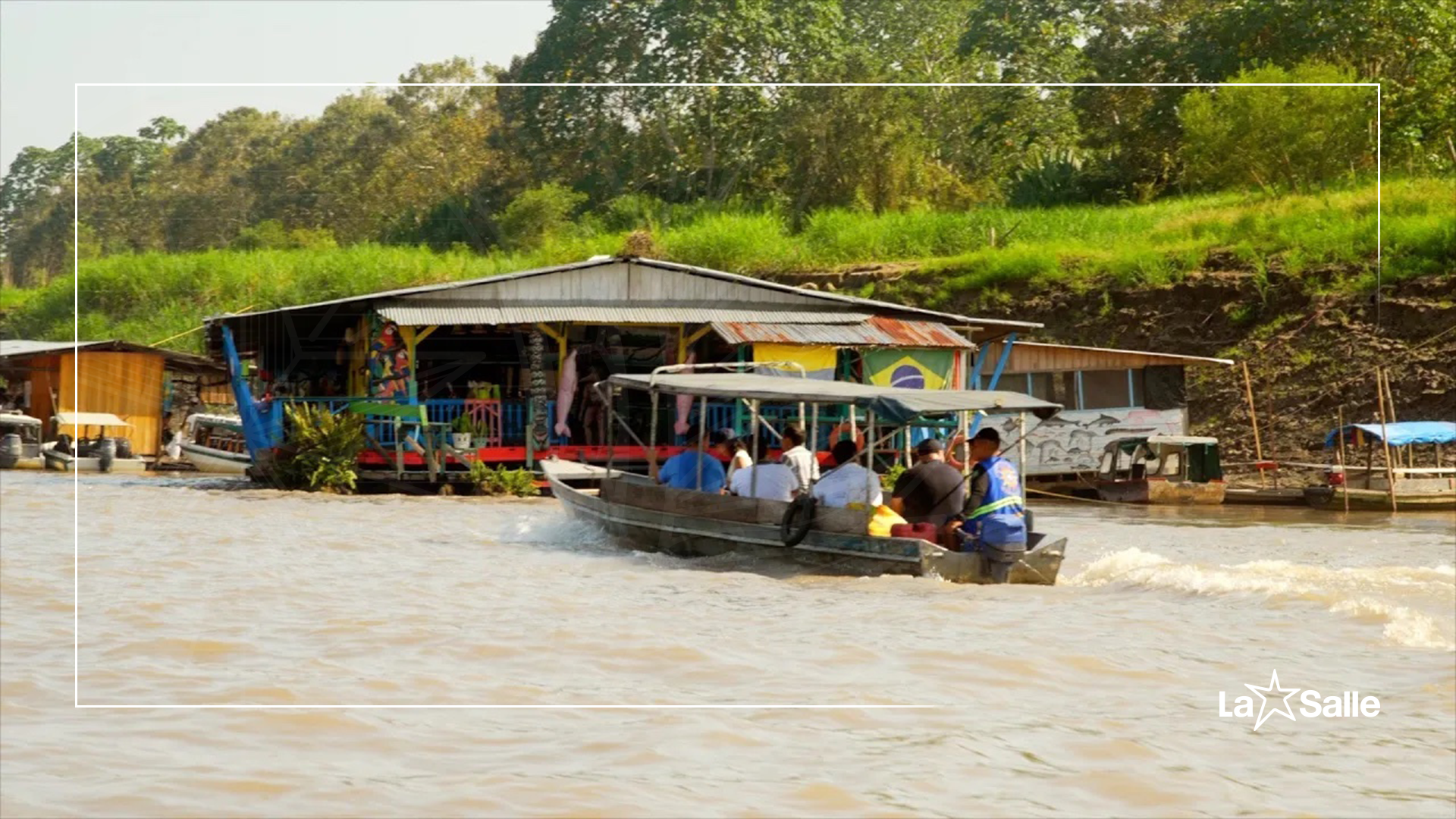“La Triple Frontera” (The Triple Border) is the title of the most recent audiovisual work published by the Observatorio Latinoamericano de Sinodalidad (Latin American Observatory of Synodality) which narrates the synodal experience of the Comunidad La Salle of Tabatinga, a work inspired by the ‘Leavening Project’ and supported by the Lasallian Region of Latin America (RELAL), where “we unite our talent and wealth as a congregation to a joint work with other congregations, as People of God”, states Brother Vinicio González, Secretary for Mission and Management of RELAL.
The Tabatinga community is located on the triple border between Brazil, Colombia and Peru, in the heart of the vast Amazon region, and was born as a creative response to Pope Francis’ call to religious life and missionaries after the celebration of the Pan-Amazonian Synod in 2019. “As a religious congregation dedicated to education, the Church invites us to continue educating in contexts other than schools,” says Brother Vinicio.
In fact, “this community is quite different from what we, the De La Salle Brothers have traditionally done, as we are focused on education, in Primary, Secondary and University education institutions”, comments Brother Daniel Niño, one of its members, who highlights that “here we do not have any educational work. What we have is a community that accompanies the indigenous, riverside, rural and urbanised communities along the Amazon River in the three countries. Not having a college, a school or any other type of educational work of our own, “has made us discover this richness of Synodality”, the Colombian religious reiterates.
From theory to practice
For his part, the director of the community, Brother Marco Salazar, considers that “here in Tabatinga we have the grace of being invited to live Synodality”, something that “is not easy, it is very difficult, it sounds very good in the documents, but I believe that we have the joy of experiencing it”.
From his experience, Brother Marco shares that “on arriving here, in these lands, I immediately noticed this richness, this vitality, this synodal sign. Here we are necessarily invited to work together, as the People of God, as a pilgrim Church, and here we live this experience very strongly. Synodality is with the Marist Missionaries, with the Lauritas, with the Vincentians, with the catechists here, the young people, the parents, the bishop. It’s a learning experience that you really feel”.
Synodality, which is walking together, is experienced by the De La Salle Brothers when we work together with people from other communities, with volunteers, with religious men and women, with priests, side by side in projects of different kinds, Brother Daniel adds, referring specifically to the project ‘Iglesia Sinodal con rostro Maguta’ –‘Synodal Church with a Maguta face’, in which formation is offered to pastoral agents of the Tikuna peoples. “The coordination group of this project has been growing, some missionaries have left, others have arrived, we ourselves have called the Marists, with whom we share the charism of education, and together we have been advancing in this process of formation. This is a concrete way in which we are living Synodality”.
God is synodal”
“God is synodal, He is the first one who came to work with us, to join us in our human experience of mercy, of divinity”, Brother Marco asserts with conviction, arguing that “Synodality is what creation does, nature shares everything with us, it walks with us, it gives us air, water, everything. Synodality is not a theory, it is lived, it is enjoyed, smelling the rain, the mud, the sweat of the people who suffer, who work here in the Amazon and in any part of our America and our planet”.
Brother Vinicio, who has accompanied the Tabatinga community on several occasions, especially when the 2nd RELAL Volunteering Congress was held there, is also convinced that “the Amazon is a place of God that smells of Synodality”.
In addition to the voices of Brothers Daniel and Marco, the audiovisual narrative “La Triple Frontera” brings together the experiences of Fray Kellycio Medeiros, a Capuchin Franciscan; Maria Luíza Opimi dos Santos, a missionary of the Comunidad Obra de Maria; and Alejandra Castellanos, a Marist volunteer. The documentary is available on the YouTube channel of the Latin American Observatory of Synodality; it is 12 minutes long and is part of the series Historias de Sinodalidad (Stories of Synodality). You can watch it here:



